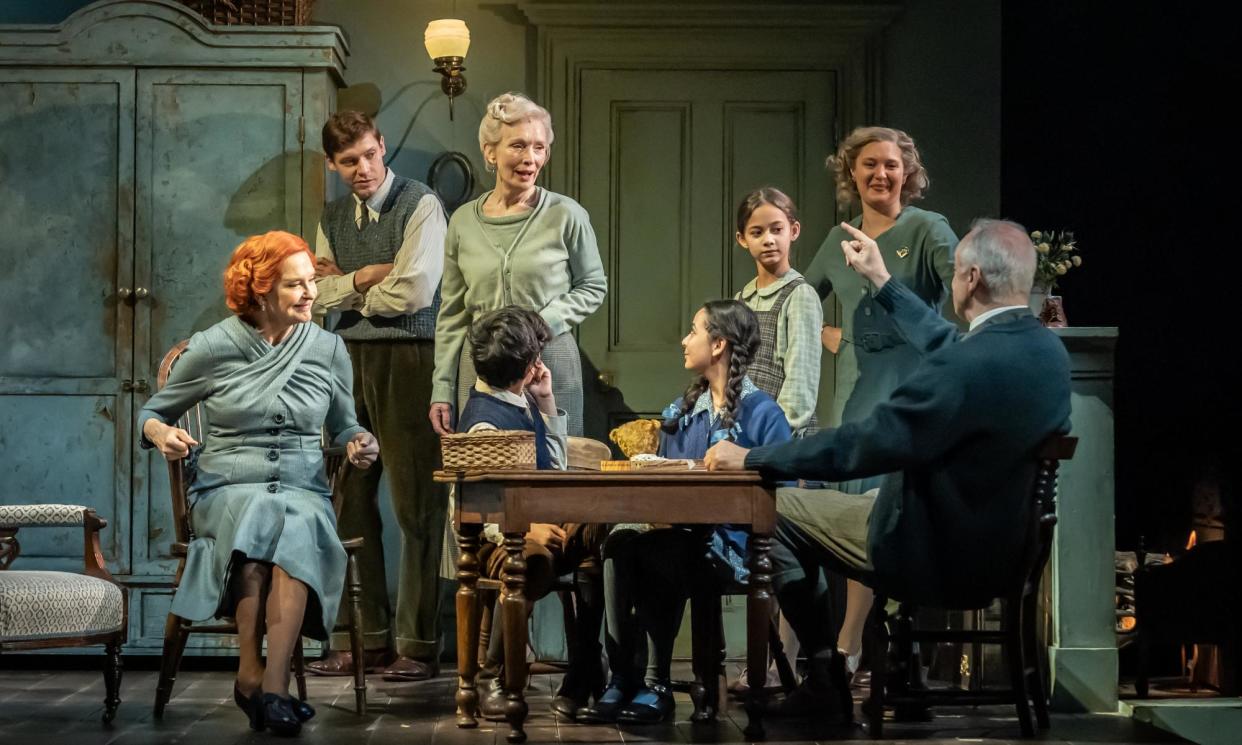Dear Octopus review – Lindsay Duncan leads a warm drama about a bickering family

Sneaking downstairs when he should really be in bed, mischievous young Bill (Felix Tandon) declares the old house to be restless. With four generations of his family scampering about the grand country home where memories are packed tight into every nook and cranny, fraught relationships are being fixed and secrets are being shared, it’s no wonder the child can’t be lulled to sleep.
This glorious revival of Dodie Smith’s interwar family drama is a visual and emotional feast. Director Emily Burns breathes rich life into a weekend gathering to celebrate the golden wedding anniversary of Dora (Lindsay Duncan) and her husband Charles (Malcolm Sinclair). Duncan is the most graceful of performers. Sharp and soft at once, Dora longs for everyone to spend time together yet is unable to walk into a room without hastily sending everyone out with a job to do. In the rare moments when she pauses for breath, the delight she takes in her family knocks the wind out of you.
The family is much like the old house, strong and dignified but tearing at the edges. Bessie Carter is stunning as the wistful, harried Fenny, longing for Billy Howle’s boyish, unhelpful Nicholas. Bethan Cullinane visibly aches for her mother’s approval as the distant Cynthia, while Kate Fahy as Aunt Belle hides her desires with glamour and snark. Each one is fully realised, these individuals with tendencies for bickering and petty jealousies, but with enormous capacity for love, forgiveness and change.
The show glides seamlessly. Frankie Bradshaw’s costumes in cool blues and generous rotating set to match hold such character within them, while Tingying Dong’s beautifully ephemeral sound design creates the sensation of time slipping by, the notes seeming to fade before they’ve fully landed. The whole show feels like this, as if they’re all butterflies temporarily pinned down.
The genius of Smith’s writing is that very little happens. Amid the family’s crossness and jokes and childish escapades, they’re all just figuring out how to be good to each other. Yet every missed opportunity and every gesture of kindness is made infinitely more poignant by the fleeting moment they stand in, with one war behind them and the next just ahead. Every moment becomes one to savour, for in the looming shadow of catastrophe, there doesn’t seem to be much more important than grasping at the precious little joys this chaotic family life can bring.


